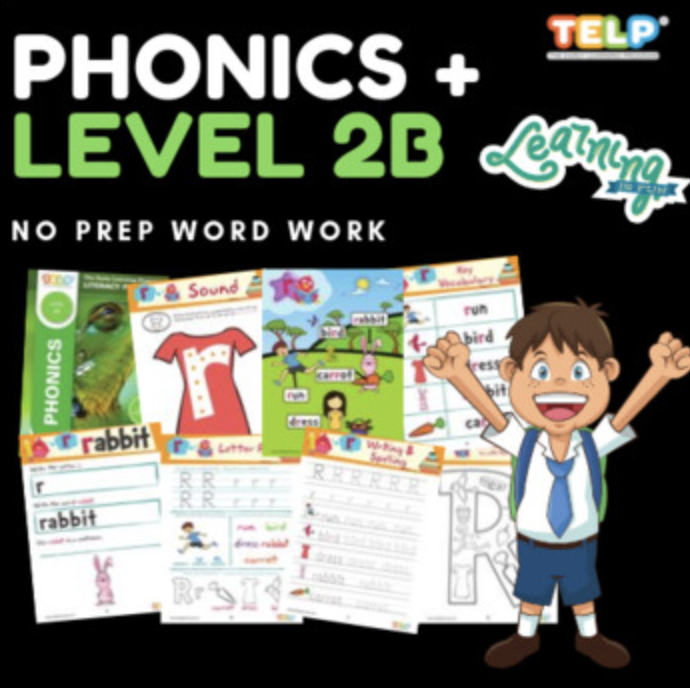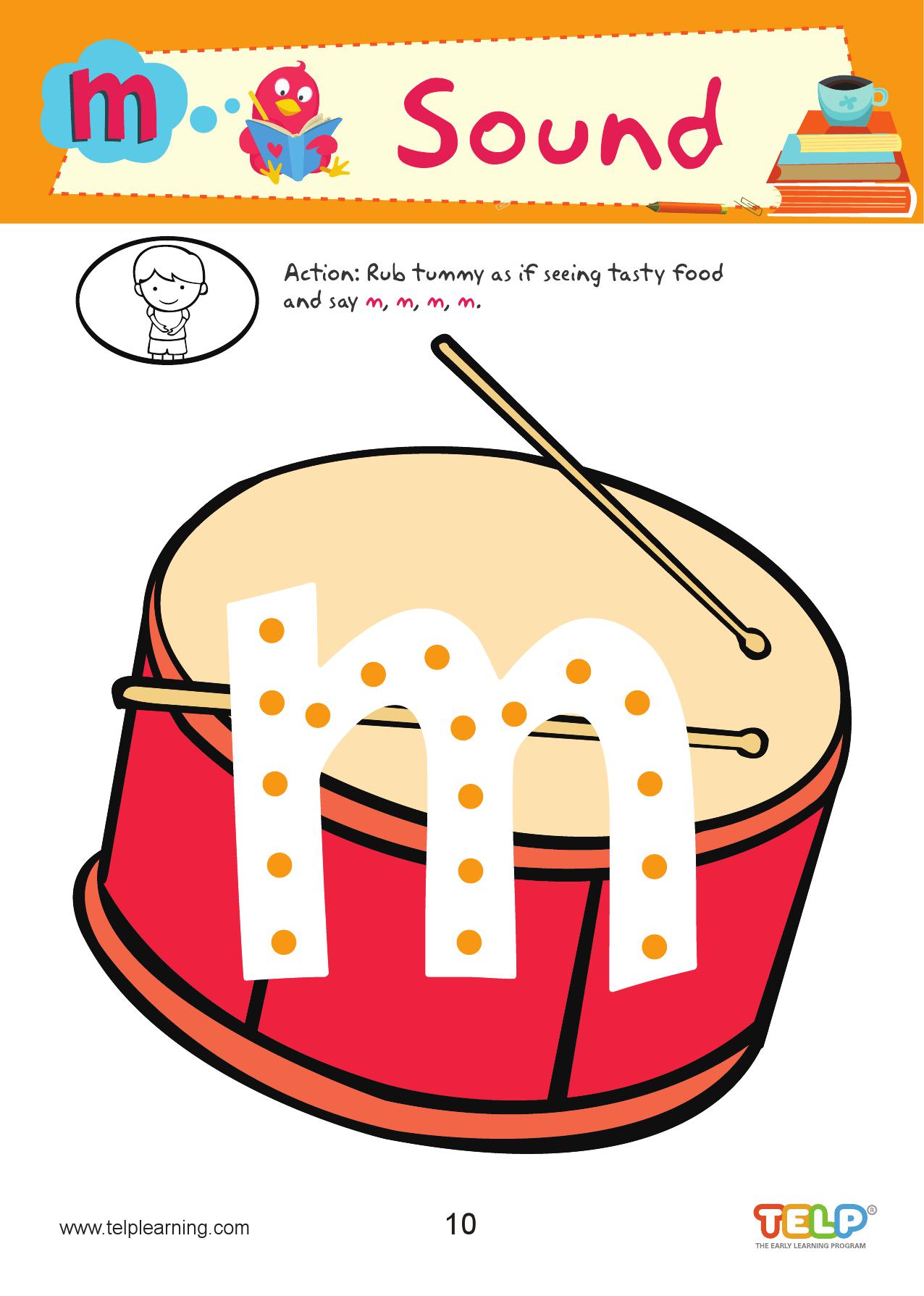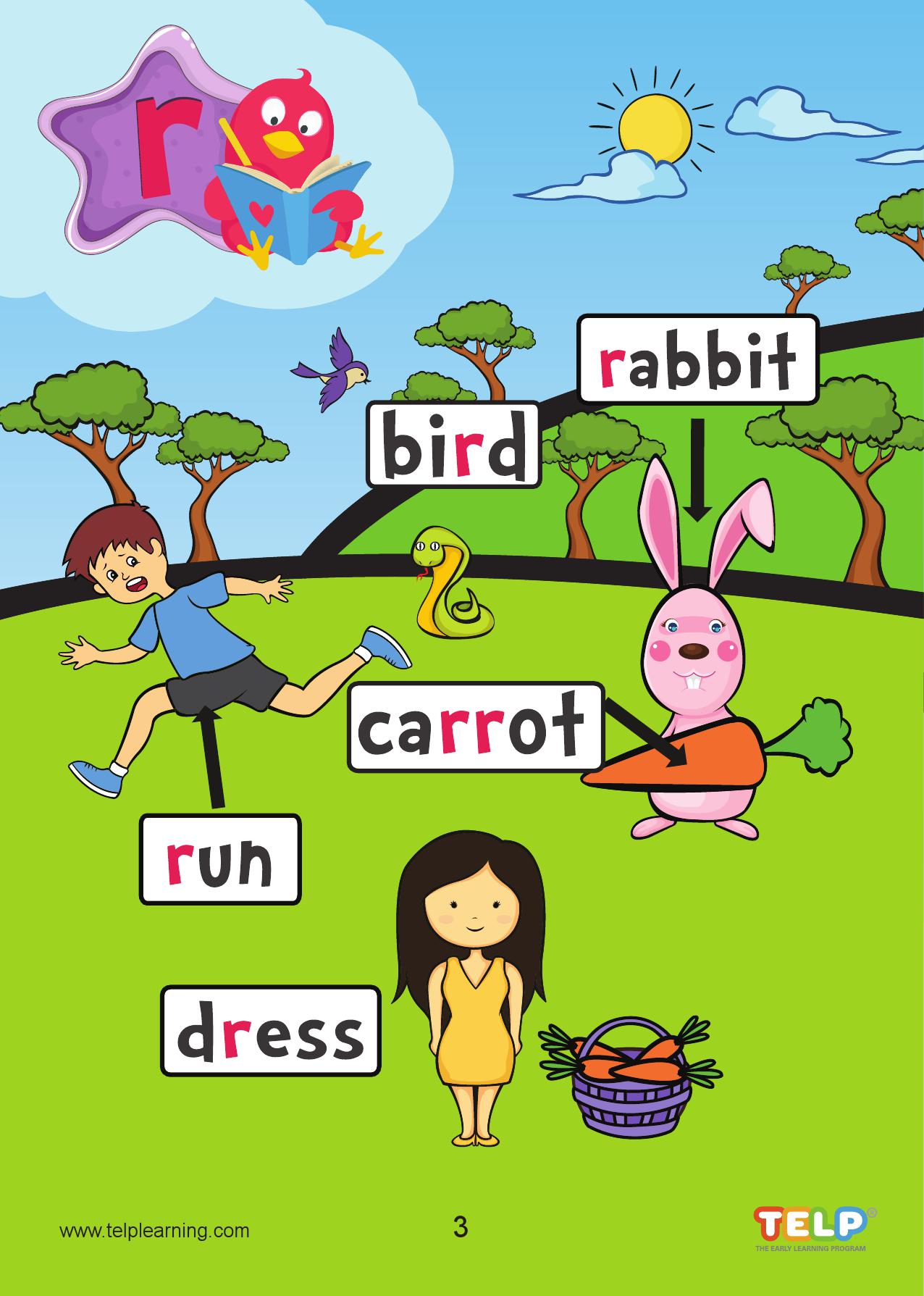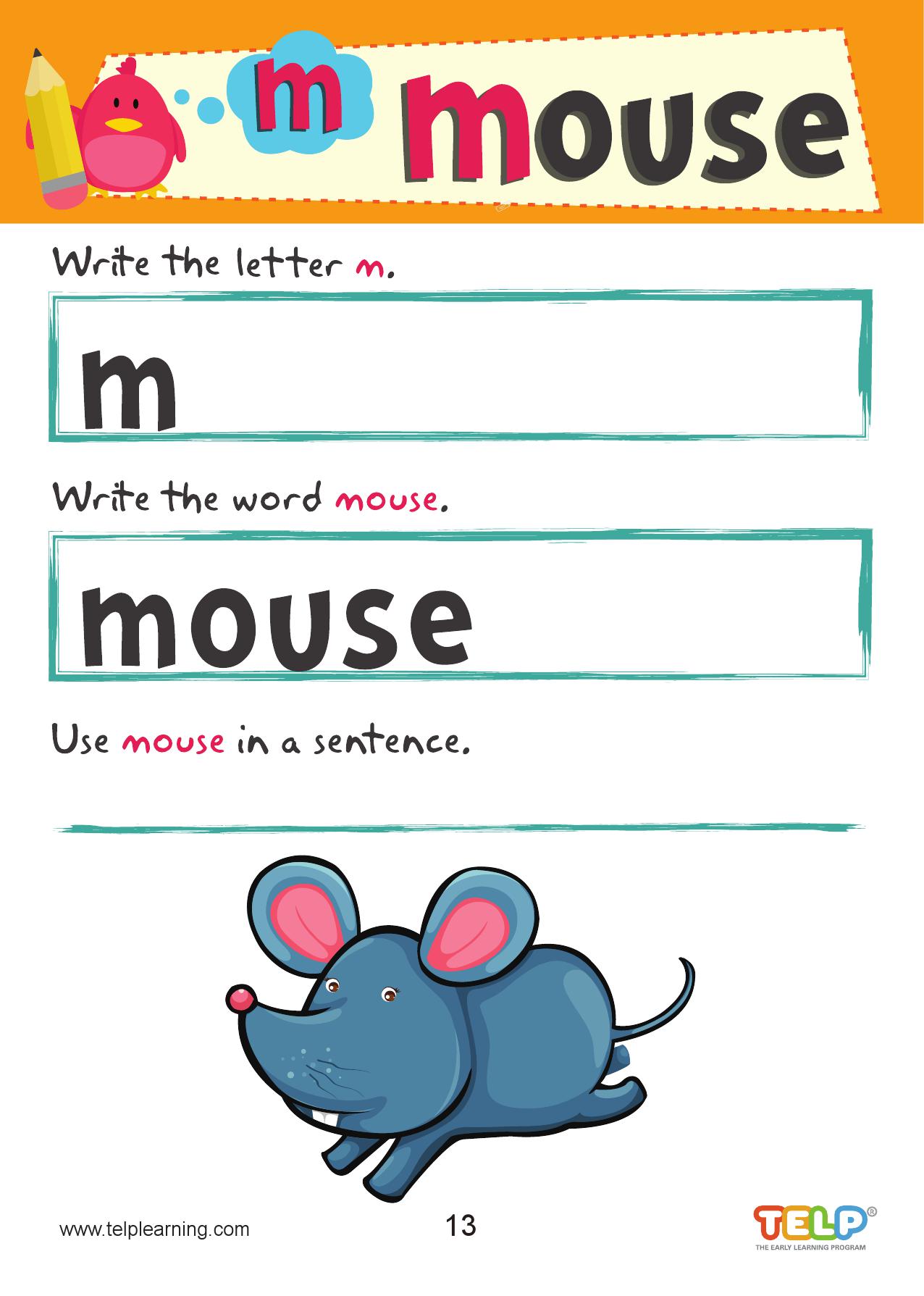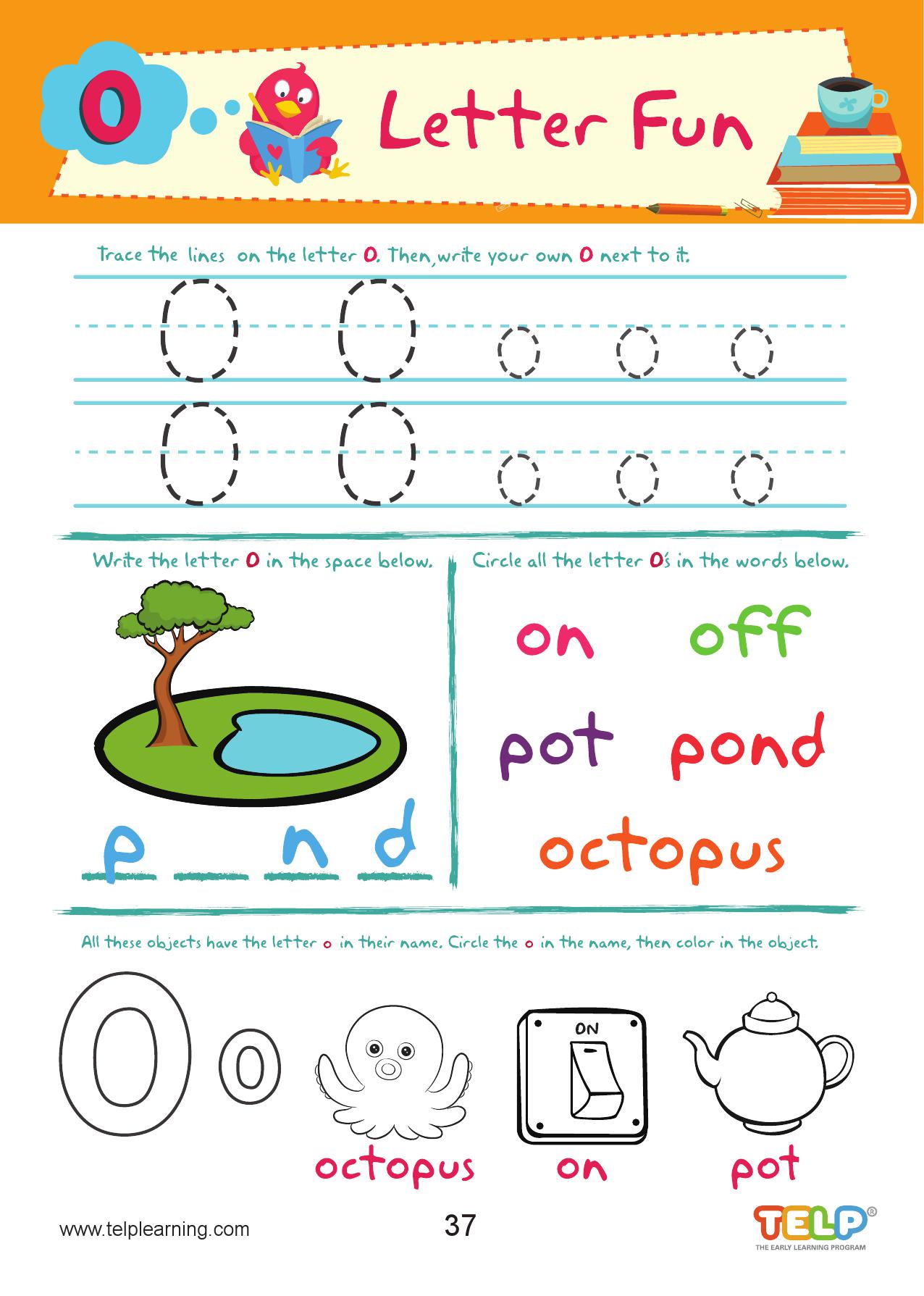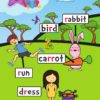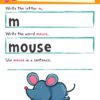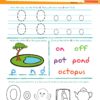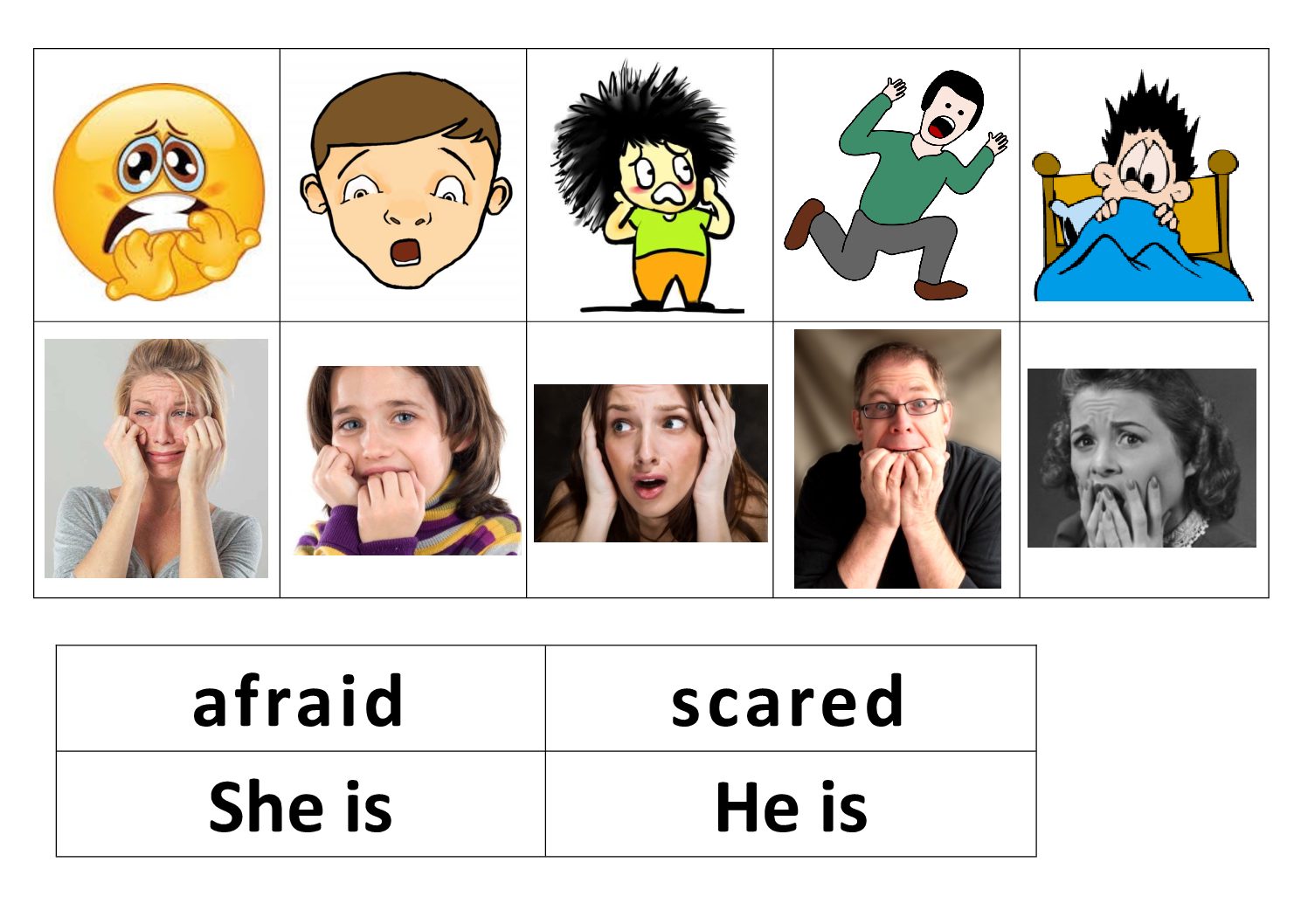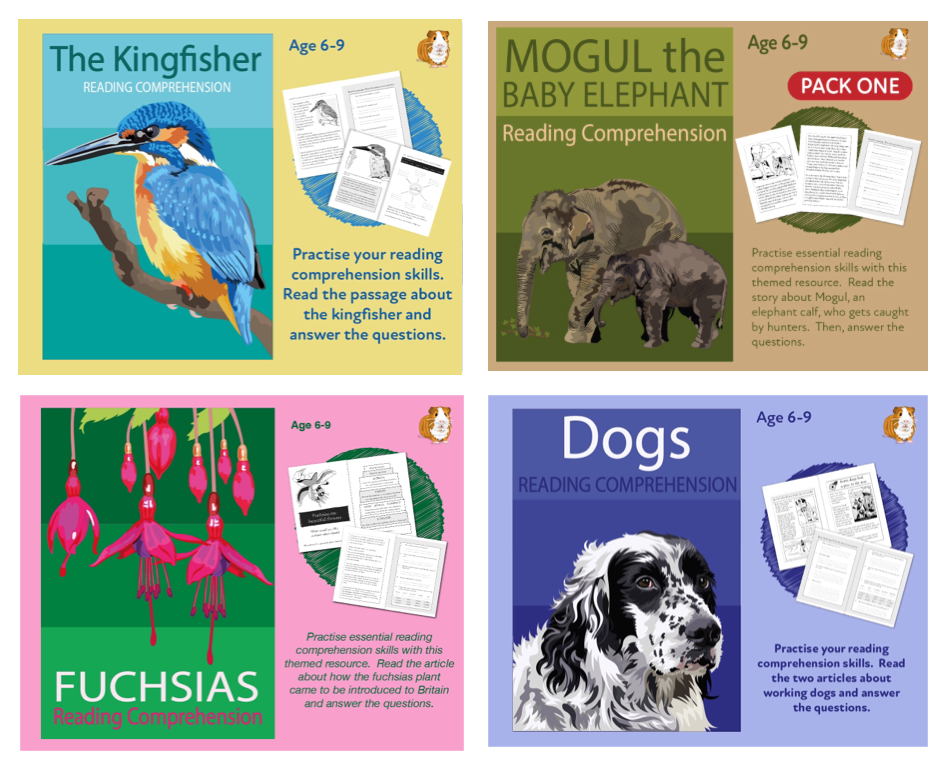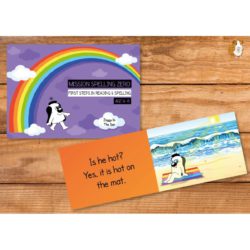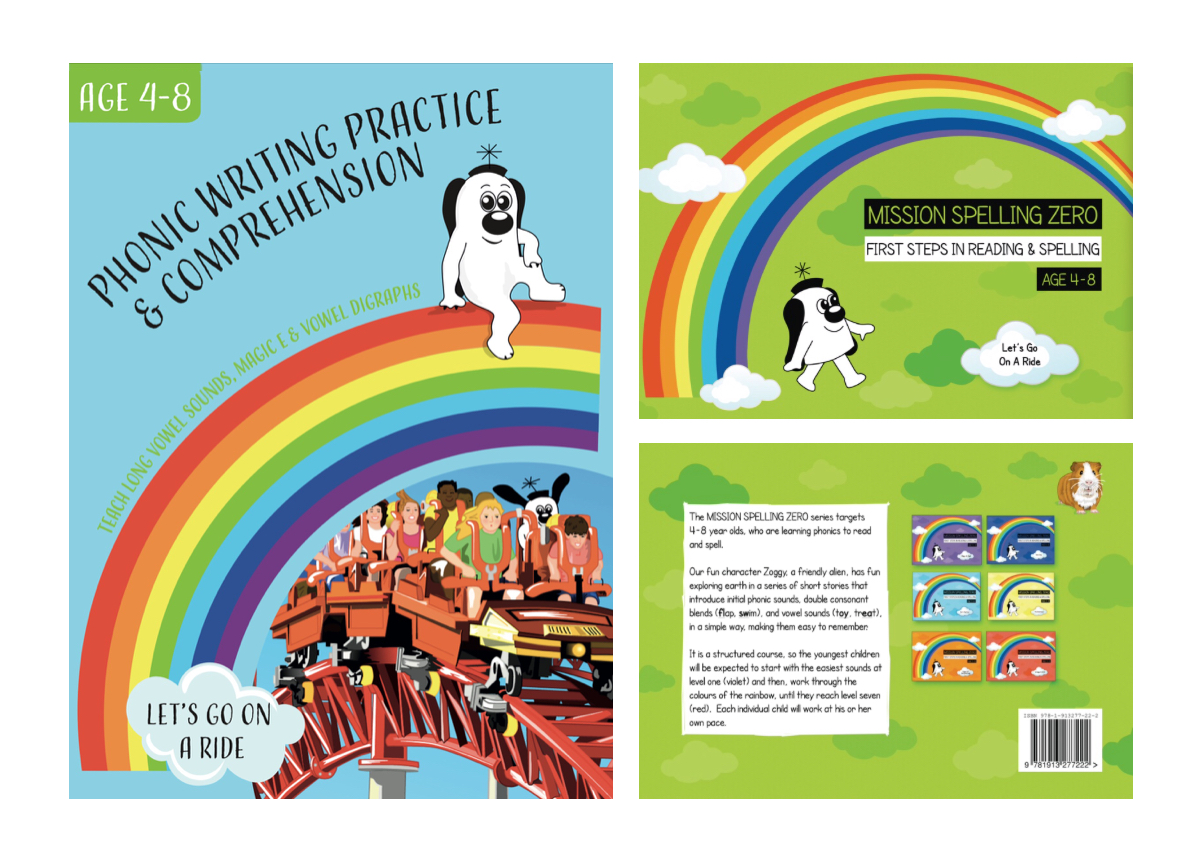Phonics 2B
R92.00
Use, by you or one client, in a single end product which end users are not charged for. The total price includes the item price and a buyer fee.
Resource Description
PHONICS 2B: R, M, D, G, O, U, I, F, B
Phonics is about the links between letters and the sounds they make. Phonics involves the relationship between sounds and their spellings.
The goal of phonics instruction is to teach students the most common sound-spelling relationships so that they can decode, or sound out, words. This decoding ability is a crucial element in reading success.
Through the TELP Literacy Program Phonics plays a vital role in developing young readers. Our program introduces the 44 main sounds of English through 3 Levels Phonics 1, 2 & Phonics 3.
Some sounds are written with two letters. Such as ee or th. These are called digraphs and they are introduced when most of the single sounds have been introduced.
Each sound has an action that helps children remember the letter(s) that represent it. As a child progresses you can point to the letters and see how quickly they can do the action and say the sound. The children will learn several letters each week. As a child becomes more confident, they will be able to say the sound without also doing the actions.
Children should learn each letter by its sound, not its name. The letters have not been introduced in alphabetical order. The first group (s, a, t, I, p, n) has been chosen because they make more simple three-letter words than any other six letters. The letters b and d are introduced in different groups to avoid confusion.



 KES(KSh)
KES(KSh) USD($)
USD($) GBP(£)
GBP(£) GHS(₵)
GHS(₵) NGN(₦)
NGN(₦) MUR(₨)
MUR(₨) BWP(P)
BWP(P) AUD($)
AUD($) TZS(Sh)
TZS(Sh) INR(₹)
INR(₹) PHP(₱)
PHP(₱) AED(د.إ)
AED(د.إ)